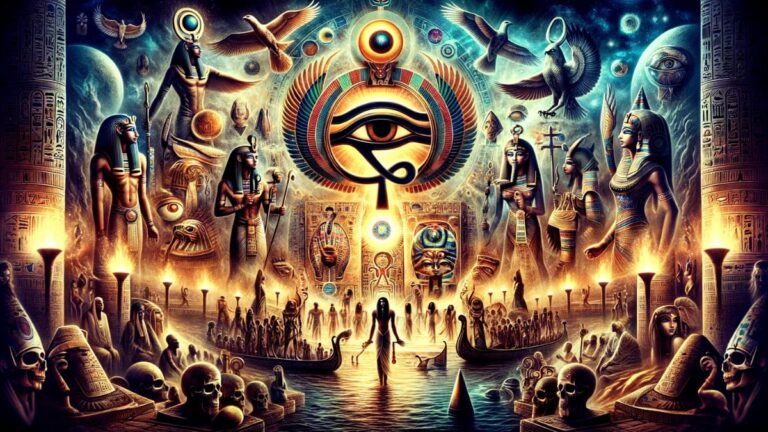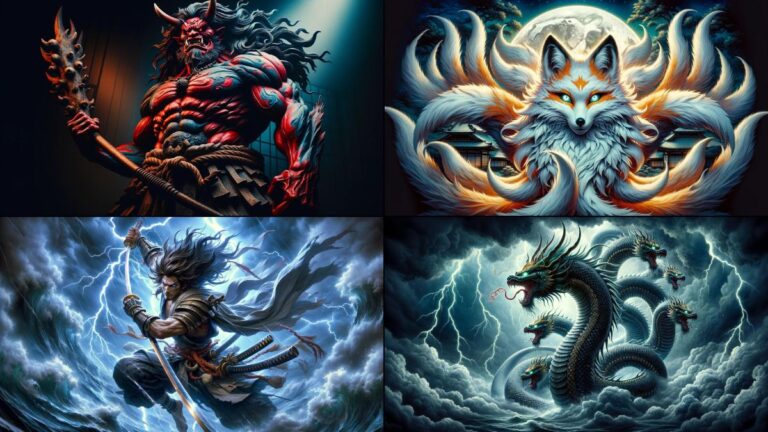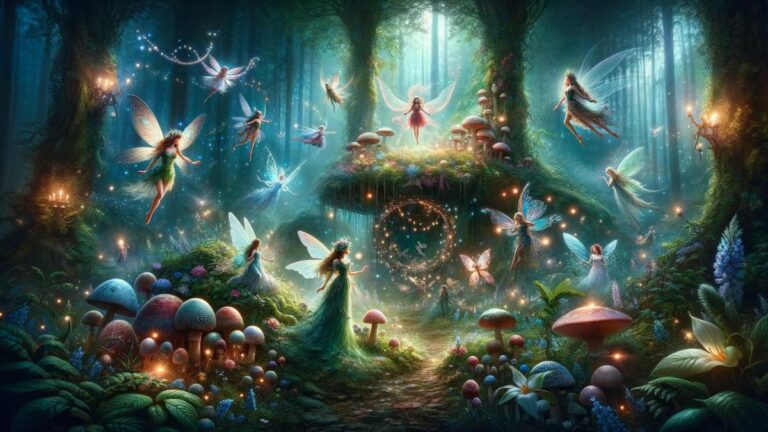Do People Still Believe in Hindu Gods? Explained

When talking about faith, it’s fascinating to see how ancient beliefs hold up in our modern world. Hinduism, with its rich tapestry of gods and goddesses, is a prime example. You might wonder if these age-old deities still capture the hearts and minds of people today. Let’s dive into this topic and see how Hindu gods continue to influence lives in the contemporary era.
The Roots of Hindu Belief
Hinduism is one of the oldest religions in the world, with a complex system of beliefs that has evolved over thousands of years. At its core, Hinduism teaches the idea of ‘Dharma’ or duty, which guides moral and ethical behavior. The religion is known for its rich mythology, featuring a vast array of gods and goddesses, each representing different aspects of life and the universe. Key texts like the Vedas and the Upanishads form the foundation of Hindu thought, offering insights into the nature of reality, the self, and the divine.
Hinduism’s flexibility is one of its most distinctive features, allowing for a wide range of practices and beliefs. This pluralism means that Hindu belief can vary greatly from one individual to another, often blending seamlessly with local traditions and customs. This adaptability has helped Hinduism to thrive for centuries, fostering a deep sense of continuity and connection among its followers.
The concept of karma and reincarnation is central to Hindu belief, emphasizing the consequences of one’s actions and the cycle of birth and death. This belief system encourages followers to live righteously, with the ultimate goal of achieving ‘Moksha’, or liberation from the cycle of rebirth. This pursuit of spiritual enlightenment is what continues to draw people to Hinduism, highlighting its enduring relevance in the lives of millions.
Modern Devotion: A Continuing Tradition
In today’s fast-paced world, one might think that ancient religious practices would struggle to maintain their relevance. However, Hindu devotion remains a vibrant and integral part of many people’s lives. The timeless rituals and prayers continue to provide comfort, guidance, and a sense of belonging in the midst of modern challenges. Technology and social media have also played a role in keeping these traditions alive, allowing for the sharing of religious content and the organization of virtual community gatherings.
The practice of yoga and meditation, deeply rooted in Hindu philosophy, has seen a global surge in popularity. These practices offer a way to connect with the spiritual aspects of Hinduism, emphasizing self-discipline, mindfulness, and inner peace. As people around the world seek ways to cope with stress and find balance, the principles of Hindu devotion offer valuable tools for personal growth and well-being.
Despite the changes brought about by modern life, festivals like Diwali and Holi continue to be celebrated with great enthusiasm, both in India and by the diaspora. These festivals not only preserve the cultural heritage but also act as a bridge, connecting the younger generation with their ancestral roots. Through these celebrations, the spirit of Hindu devotion is kept alive, demonstrating its adaptability and enduring appeal.
Hindu Gods in Daily Life
Hindu gods and goddesses are not just revered figures in temples; they are a part of daily life for many followers. These deities, with their distinct personalities and stories, offer guidance and inspiration in various aspects of life. Ganesha, known as the remover of obstacles, is often invoked before starting new ventures. Lakshmi is worshipped for prosperity and well-being, while Hanuman is looked up to for strength and loyalty.
The integration of these deities into daily routines reinforces a sense of connection and reliance on the divine. It’s common to see small altars in homes, businesses, and even vehicles, where people offer prayers and seek blessings for their endeavors. This personal engagement with the gods brings spirituality into the mundane, making it a lived experience rather than an abstract concept.
Festivals and rituals centered around these deities play a crucial role in community bonding and cultural preservation. They provide opportunities for storytelling, music, dance, and art, all of which are expressions of devotion and respect for the divine. Through these communal activities, the stories and values of Hinduism are passed down to the next generation, keeping the faith vibrant and relevant.
The Impact of Globalization on Hindu Faith
Globalization has brought the world closer, creating a melting pot of cultures and ideas. For Hinduism, this has meant both challenges and opportunities. On one hand, the global spread of Hindu culture has led to a wider acceptance and understanding of its practices, such as yoga and meditation, which have been embraced by people of various backgrounds. These elements of Hinduism have been adapted to fit global lifestyles, often focusing on health and wellness.
However, globalization has also posed challenges to traditional practices and beliefs. The influx of Western consumer culture into traditionally Hindu societies has led to changes in lifestyles that sometimes conflict with age-old customs and values. There’s a tension between maintaining tradition and embracing modernity, leading to debates within communities about the future of Hindu practices.
Despite these challenges, globalization has also facilitated the diaspora’s connection to their roots. The internet and social media allow for the sharing of religious texts, teachings, and rituals, making it easier for Hindus around the world to practice their faith. This digital age has fostered a new form of community that transcends geographical boundaries, reinforcing the global Hindu identity.
Interpreting Ancient Gods in a Modern World
In a world where science and technology reign supreme, the relevance of ancient gods might seem questionable. Yet, for many Hindus, these deities continue to hold profound significance, offering wisdom and guidance applicable even in contemporary settings. Gods like Krishna and Shiva are not just worshipped for their divine roles but also admired for their philosophical teachings, which emphasize balance, resilience, and the pursuit of truth.
The stories of Hindu gods, rich with symbolism and moral lessons, continue to be a source of inspiration and contemplation. They offer a way to navigate the complexities of modern life, addressing themes of duty, righteousness, and the struggle between good and evil. These timeless narratives help individuals find meaning and purpose in their daily lives, making these ancient figures deeply relevant in today’s world.
Moreover, the artistic and cultural expressions inspired by Hindu gods—ranging from music and dance to literature and film—demonstrate their enduring influence on society. These artistic endeavors not only celebrate the divine but also serve as mediums for exploring and interpreting the timeless messages of Hinduism in a way that resonates with the contemporary audience.
Youth and Hinduism: A Changing Landscape
The youth play a crucial role in the evolution of any tradition, and Hinduism is no exception. Today’s young Hindus are navigating a world vastly different from that of their ancestors, often balancing traditional beliefs with modern values. While some may question the relevance of ancient rituals, others find innovative ways to engage with their faith, adapting practices to align with their lifestyles.
Social media and digital platforms have emerged as significant tools for young Hindus to connect with their faith and community. Through online forums, blogs, and social media groups, they explore and share their spiritual journeys, seeking answers to existential questions in the teachings of Hinduism. This digital engagement has led to a revival of interest in Hindu philosophy, especially among those seeking alternative perspectives on life and spirituality.
However, the changing landscape also presents challenges, as the pressure to conform to modern secular norms can lead to a dilution of religious practices. The challenge for Hindu youth lies in finding a balance between tradition and modernity, ensuring that the essence of their faith remains intact while adapting to the evolving world. This balancing act is crucial for the continuity and relevance of Hinduism in the 21st century.
The Role of Rituals and Festivals
Rituals and festivals hold a special place in Hinduism, serving as both a celebration of faith and a means of preserving cultural heritage. These events are not just religious observances but also vibrant social gatherings that strengthen community bonds. Diwali, the festival of lights, for example, symbolizes the victory of light over darkness and is celebrated with great fervor, involving the lighting of lamps, fireworks, and the sharing of sweets among family and friends.
Rituals, such as Puja (worship), are daily practices that connect individuals to the divine, offering a moment of reflection and gratitude amidst the hustle and bustle of life. These rituals are personalized and can vary greatly, reflecting the diversity within Hinduism itself. They provide a sense of rhythm and continuity in the lives of believers, reinforcing their connection to the past and to each other.
Festivals like Holi, the festival of colors, not only celebrate the changing seasons but also teach lessons of forgiveness, friendship, and the renewal of relationships. Such events bring together people of all ages, transcending social and economic barriers, and highlighting the inclusive nature of Hinduism. Through these communal celebrations, the essence of Hindu teachings is woven into the fabric of daily life, making religion a living, breathing part of the community.
Hinduism Beyond Borders: A Global Perspective
As Hinduism has spread across the globe, it has encountered and adapted to a multitude of cultures and societies. This expansion has not diluted the essence of Hindu belief but rather enriched it, leading to a vibrant tapestry of practices and interpretations. In countries far from India, Hindu temples have become cultural hubs, where traditions are preserved and passed down to future generations.
The global Hindu community is diverse, including not just expatriates from India but also converts and those who have adopted Hindu practices into their spiritual lives. This inclusivity is a testament to the universal appeal of Hinduism’s core teachings, which emphasize the interconnectedness of all beings and the importance of living in harmony with the natural world.
Interfaith dialogues and collaborations have become more common, with Hindu principles contributing to global conversations on peace, sustainability, and social justice. This exchange of ideas not only highlights the relevance of Hindu teachings in addressing contemporary issues but also fosters a sense of unity and understanding among different religious communities.
Challenges and Adaptations in Modern Worship
As Hinduism continues to thrive in the modern world, it faces challenges that require adaptation and innovation in religious practice. Urbanization and the pace of modern life have made traditional daily rituals more difficult to maintain, leading to a search for more flexible forms of worship. This has resulted in shorter, more concise rituals that fit into busy schedules, without sacrificing the essence of the practice.
The role of technology in religious practice has grown, with virtual temples, online Puja services, and digital darshans allowing devotees to engage with their faith from anywhere in the world. These digital adaptations ensure that the spiritual needs of the community are met, even when physical access to temples is restricted.
However, these changes raise questions about the future of traditional worship and the role of priests and temples in a digitized world. The challenge lies in balancing respect for age-old traditions with the need for accessibility and relevance in today’s society. As Hinduism evolves, it continues to find ways to remain meaningful to its followers, proving its resilience and adaptability in the face of change.






